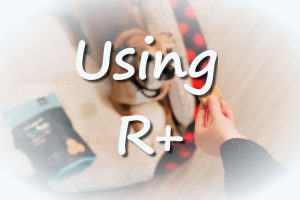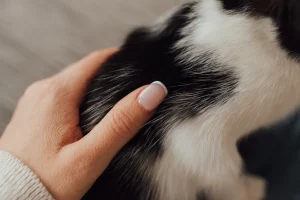Sometimes your furry friend makes decisions that leave you scratching your head and wondering what happened. Like, why on earth would they decide your bed is the right place to do their business?
The reasons behind this behavior can range from stress and anxiety to medical issues or simple miscommunication about where to go. But this topic goes much deeper than just the initial answer; there are strategies you can employ to tackle the root causes and keep your bed poop-free. Let’s uncover the layers of this puzzling problem together.

Why Do Dogs Poop Indoors?
It’s frustrating when your dog decides the best spot to poop is your bed. This behavior can stem from a variety of reasons, even in dogs that are otherwise housetrained. Medical issues often top the list. Conditions such as diarrhea, urinary tract infections, or gastrointestinal problems might compel your pup to find a nearby spot quickly, especially if they associate it with comfort and safety.
Sometimes, territorial marking is at play. If there are new pets or even guests in the house, your dog might feel the need to assert dominance over their favorite spots. Other times, they might be overstimulated or excited, leading to an inability to hold it. Furthermore, puppies or senior dogs may have less control over their bodily functions.
Don’t overlook the realm of environmental factors. Sudden changes, like moving to a new home, changing routines, or even a shift in the household structure, can upset your dog’s sense of security and make accidents more likely.
Is My Dog Stressed or Anxious?
Stress and anxiety can significantly affect a dog’s behavior, sometimes leading to inappropriate pooping. This behavior often highlights what’s bothering your furry friend. Is your dog suddenly pooping on your bed when you leave the house? They could be experiencing separation anxiety. Dogs are creatures of habit, and changes in their routine can throw them completely off balance.
Additionally, triggers like loud noises, being around new people, or even seeing other animals through the window can elevate their stress levels. When overwhelmed, some dogs react by pooping in comfort zones—and for many pooches, that’s your bed.
A unique aspect to consider is the impact of preventative measures. Regularly providing mental stimulation through play and training can alleviate anxiety. You might also want to look into calming products, such as pheromone diffusers or anxiety wraps, tailored to help your pet feel more at ease.
Recognizing these stressors can be vital. Keep an eye out for other signs of anxiety, like excessive barking, pacing, or destructive behavior, and address them proactively. This not only helps manage inappropriate pooping but also boosts your pup’s overall well-being.
Medical Issues to Consider
Health problems can be a sneaky culprit behind your dog’s potty problems. Conditions like gastrointestinal issues, infections, and even anxiety can trigger this behavior. For instance, if your furry friend is dealing with diarrhea or another stomach ailment, they might not be able to hold it in and end up on your bed instead.
Also, older dogs can face unexpected issues such as dementia, which might confuse their potty training instincts. It’s key to be vigilant about their health changes. Scheduling a vet visit is wise if your dog’s bathroom habits suddenly change. Don’t hesitate; addressing potential medical concerns early can prevent bigger problems down the road.
What About Territorial Marking?
Dogs can surprise us with their social behaviors—sometimes too much! If your dog feels the need to mark their territory, you might find yourself cleaning up after them on your bed. This is especially common in male dogs, but females can do it too, particularly if they sense another pet’s presence or if they want to establish dominance.
The bed, in particular, can seem like a strategic spot. It carries your scent, making it a prime target for marking. A few ways to prevent this include:
- Reinforcing boundaries: Train your dog to stay off the furniture.
- Cleaning thoroughly: Use an enzymatic cleaner to remove any lingering scents that might entice them to revisit the area.
- Providing alternatives: Introduce comfy beds or blankets exclusively for your dog to lay on, making their own space inviting.
Monitoring your dog’s behavior during stressful situations, like new pets or guests, can help identify triggers that lead to such marking. Understanding these actions is the first step toward finding effective solutions.
Could It Be a Training Issue?
One of the most common reasons a dog might poop on your bed is inconsistency in training. If your pup hasn’t received clear guidelines on where “business” is acceptable, they might choose your bed as a convenient spot.
Consider how you’ve approached potty training. Have you been consistent with potty breaks? Mixed signals can confuse dogs. For example, if you’ve sometimes allowed them to roam free in the house but later scold them for an accident, they won’t understand what they’re being reprimanded for.
To tackle this, reinforce positive behavior. Take your dog outside regularly, particularly after meals or playtime. Recognizing when they do their business outside and rewarding them helps build a strong association with the right place to go. Over time, this clarity can prevent accidents—and ensure your bedding stays clean.
How Diet Plays a Role
A dog’s diet can significantly influence their bathroom habits. If your furry friend poops on your bed, it might be that something’s off with their food. Poor-quality dog food high in fillers can cause irregular bowel movements or even digestive upset, prompting unexpected messes.
Additionally, sudden changes in diet—like switching foods too quickly—can upset their stomachs. Signs to watch for include diarrhea, flatulence, or straining to poop.
If you’re noticing such behaviors, here are a few tips to ensure their diet supports good bathroom habits:
- Monitor Ingredients: Look for high-quality proteins and minimal fillers.
- Hydration Matters: Ensure they have access to fresh water to prevent digestive issues.
- Gradual Changes: If you need to switch foods, do it gradually over a week or so to avoid upset stomachs.
- Fiber Check: Foods rich in fiber can aid digestion and regulate poop consistency.
If issues persist, consult your vet to explore any underlying health problems or dietary adjustments that could help.
Impact of Age and Maturity
Understanding your dog’s age can shed light on unexpected bathroom behaviors. Puppies, often still mastering house training, may not always recognize that your bed isn’t an appropriate place to relieve themselves. They tend to poop wherever they feel the urge, especially without proper supervision or prompt potty breaks. Keep in mind they’re still developing bladder control and might react to excitement, anxiety, or changes in routine with accidents.
Older dogs , on the other hand, may face health issues like incontinence or cognitive decline that can affect their ability to make it outside on time. Sometimes, it’s simply a case of old age catching up with them. Adjusting lifestyle factors and being more patient with your furry companion is essential as they grow older and potentially face these challenges.
What Should I Do Immediately?
Finding poop on your bed can be frustrating, but swift action can help you manage the mess and prevent future occurrences. Here’s what you should do:
Clean Up Promptly : Use gloves and a sturdy bag to pick up the mess. Clean the area with an enzyme-based cleaner specifically designed for pet waste to eliminate odors that might encourage repeat offenses.
Assess the Situation : Consider when this happened. Was your dog recently fed? Have they had access to outside time? Understanding the context can help spot patterns.
Monitor Behavior : Watch your dog’s behavior for signs of stress, anxiety, or health issues. If this becomes a recurring problem, it’s wise to consult a veterinarian to rule out any medical concerns.
Increase Bathroom Breaks : Immediately take your dog outside for a bathroom break. If they relieve themselves, give lots of praise and a treat. This reinforces the behavior you want to see.
Revisit Training : It might be time to go back to basics with house training. Use positive reinforcement for appropriate bathroom behavior and avoid punishment for accidents, as this can increase anxiety and worsen the issue.
Unique Insight
Dogs often see their owners’ beds as safe spaces—it’s where they feel close to you. Making sure your dog understands their designated bathroom area can help reinforce boundaries. If they seem drawn to your bed, consider a comfy dog bed or blanket nearby to give them their own space that still keeps them close. Regularly guiding your dog outside after play sessions or meals can also provide them with the cues they need to develop good habits.
Interesting Facts About Canine Behavior
Dogs have a unique relationship with their environment, and their potty habits often reflect more than just physical needs. For example, dogs may mark territory by pooping, which is especially true if there’s been a new arrival (like a guest or another pet) in the house.
Another intriguing aspect is that stress, anxiety, or changes in routine can trigger inappropriate elimination. If your dog suddenly poops on the bed, it might be signaling discomfort with something in their life. Dogs sometimes seek comfort in their owner’s scent; so if they’re feeling stressed, they might feel more secure on your bed.
Moreover, certain breeds are more prone to submissive urination and defecation. This behavior can be a sign of submission or fear, especially in rescue dogs adjusting to new homes. Understanding these behaviors helps us address them better, creating a more harmonious living situation for both you and your furry friend.
Prevention Strategies That Work
To steer clear of those unwelcome messes in your bed, consider these practical strategies:
Establish a Routine: Dogs thrive on routine. Regular potty breaks, especially after eating or waking up, can help reduce accidents. Take them out frequently, especially post-meals or naps.
Limit Access: If your dog is prone to this behavior, restrict their access to your bedroom when you’re not around. Baby gates can be a helpful boundary.
Address Anxiety: If stress is a factor, provide a safe space, like a cozy crate or a specific quiet area with familiar toys. Consider calming aids, such as pheromone diffusers or anxiety wraps, to ease their nerves.
Take Note of Changes: Be aware of any changes in your dog’s environment. New pets, moving homes, or even changes in your schedule can impact their behavior. Help them adjust to these changes gradually.
Positive Reinforcement: Reward your dog when they do their business outside. Praise and treats can reinforce the desired behavior, making them more likely to go outside in the future.
Frequent Vet Visits: Keep up with regular vet check-ups to rule out any medical issues that might contribute to inappropriate elimination. Issues like urinary tract infections or gastrointestinal problems can lead to accidents.
By implementing these strategies, you can help ensure your pup understands where it’s appropriate to do their business, creating a cleaner and more pleasant home for both of you.
Alex, a passionate animal lover, has experience in training and understanding animal behavior. As a proud pet parent to two dogs and three cats, he founded AnimalReport.net to share insights from animal experts and expand his knowledge of the animal kingdom.




